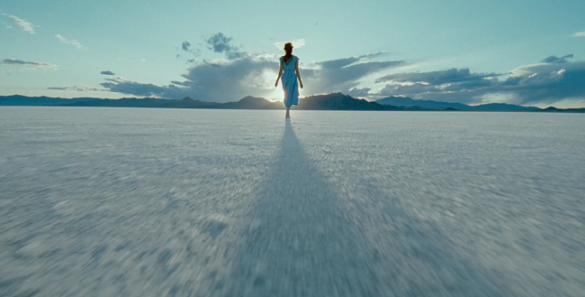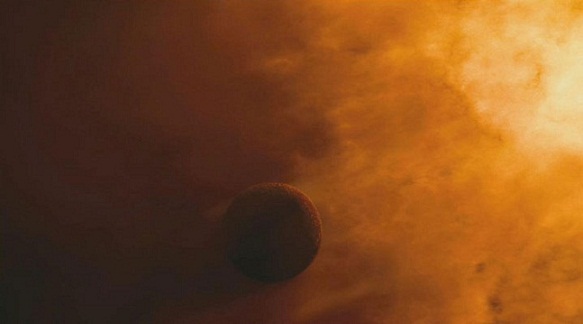Tree of Life

Terrence Malick is one of the true poets of the cinema, one who still believes that the medium could be a storehouse of mystery and wonder. John Lennon once said of “2001” that it should be shown in a temple 24 hours a day. The same is true of “The Tree of Life”.
It takes you to the farthest reaches of the universe, from the beginning of time until the end, from vistas almost too vast to be taken in by the human senses to cellular views of the origins of life. It seems to be showing us that while a human life is very small and very short, relatively, it is an equivalent wonder. Soon we are watching a story about a boy growing up with his brothers in the suburbs of Waco, Texas in the 50s, an often idyllic existence of playing in fields and woods. The narrative unfurls like a ribbon, the camera floating as if in memory or dream. Brad Pitt does nuanced work as an oppressive, exacting father. He feels like a failure: he worked so hard to bring his various ideas and schemes to fruition but never found success. An intimidating presence, he does not countenance any backtalk at the table, even from his wife (and there’s a grueling scene where he physically restrains her). Everyone just breathes easier when he’s not around. However, this is not a one-note character: the father is also a kind, sensitive man who loves classical music and is the organist for the church. He loves his family, truly and deeply.
The unknown Jessica Chastain plays the wife and mother. We hear her inner narration more often than she actually speaks. She is a Christian, a gentle, loving soul. You could criticize the way her character is conceived: she is a saint (and Chastain is as beautiful as any Mary ever painted), but we never really get to know her. But just like in those Renaissance paintings, there is a very, very important message about humanity in Jessica Chastain’s face, in the way she looks at her sons; it’s about love and it’s about humanity and it’s so very feminine and human.
She teaches the boys to live "the way of grace" as opposed to "the way of nature," while the father teaches them that you can’t be too nice and get ahead in this world. The older boy rebels; he grows up to be an architect played by Sean Penn. We see that he’s achieved some level of success that his father never reached, but he’s unhappy, troubled. He moves through sterile, antiseptic environments.
But the film is most transcendent for me when it foregoes narrative entirely, aspiring to the state of music or poetry. Some will say it’s a deeply religious piece. I won’t disagree, but I’m an atheist and it spoke to me profoundly. You might also interpret its visions of the impersonal machinations of the universe into which the characters hurl their cries to God as a depiction of the opposite: a great, absent void.
But then there is Penn near the end, stumbling upon what may be heaven, out by the edge of the sea. What is certain is that he’s come to a place of forgiveness and grace, surrounded by people with whom he’s loved and warred in his life--his mother is there, and his father, his brothers--and the score explodes into an ode to joy. At those moments, seeing "The Tree of Life" on a huge screen with a great sound system was an exultant and, yes, spiritual experience. It is staggeringly ambitious, but it’s also deeply humble in the face of the numinous, whether that comes in the form of a field of sunflowers, a nebulae at the farthest reaches of the universe, or the way a mother’s face is reflected in that of her son.

Rating: *****
Key to ratings:
***** (essential viewing)
**** (excellent)
*** (worth a look)
** (forgettable)
* (rubbish!!)
- June 15, 2011


 Scott Pfeiffer
Scott Pfeiffer
Reader Comments